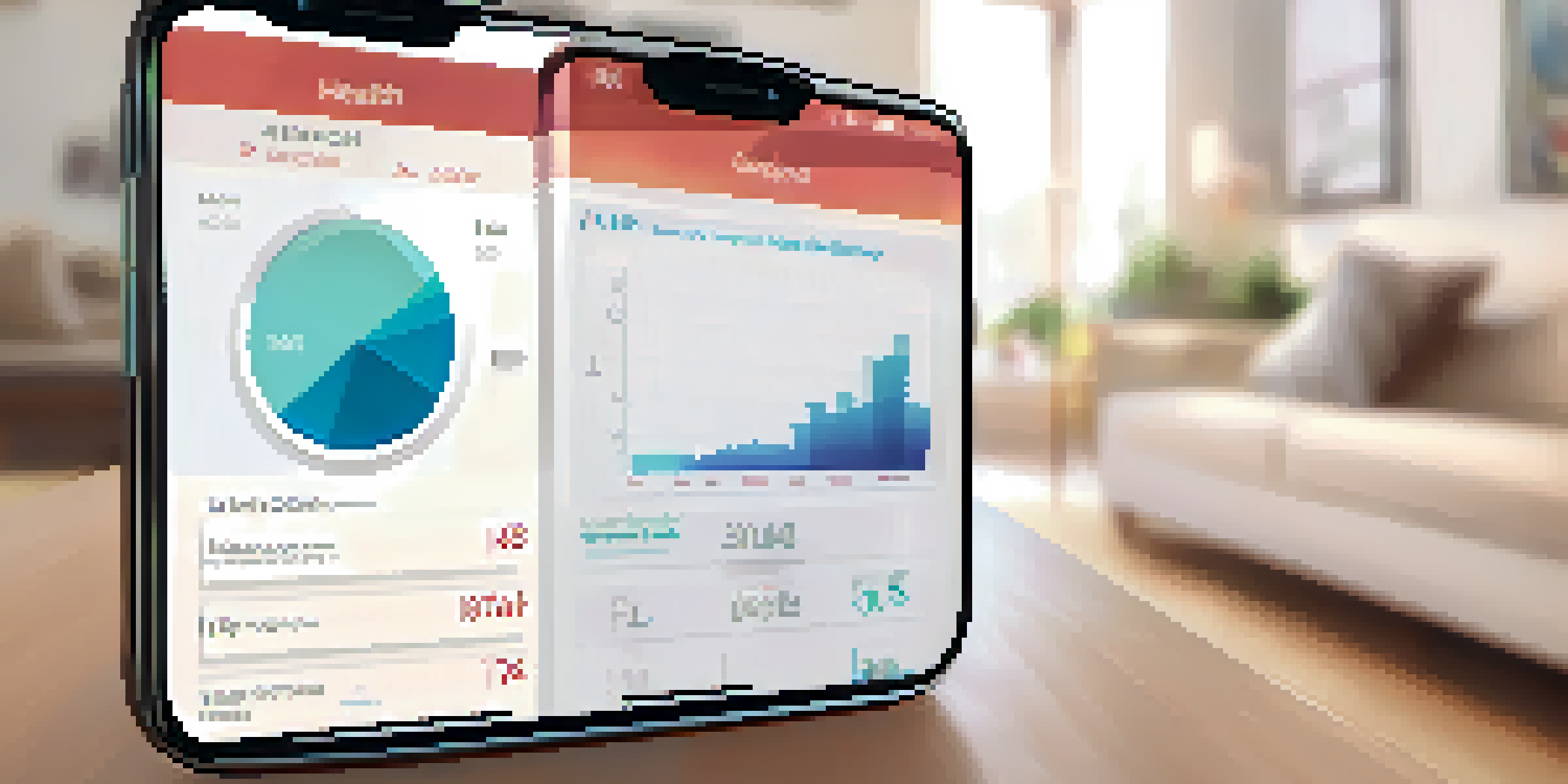Data Privacy Concerns in Mobile Health Applications Explored

Understanding Mobile Health Applications and Their Use
Mobile health applications, or mHealth apps, are tools that help users manage their health and wellness through their smartphones. These applications can track everything from daily steps to mental health metrics, making health management more accessible than ever. However, as these apps collect sensitive personal data, the importance of understanding how that data is handled cannot be overstated.
In the age of digital health, understanding how personal data is collected, shared, and secured is essential for individuals seeking to improve their health and wellness.
For example, an app that monitors heart rate can provide users with valuable insights but may also store sensitive health information. Users often don’t realize how much data they are sharing when they download these applications. The convenience of having health information at our fingertips sometimes overshadows the potential privacy risks involved.
As more people turn to mobile health solutions, it’s crucial to examine the ways these apps gather and protect user data. This exploration not only helps users make informed choices but also encourages developers to prioritize data privacy in their designs.
The Types of Data Collected by Health Apps
Mobile health applications collect a variety of data types, ranging from basic information like age and gender to more sensitive data such as medical histories and biometric readings. This breadth of data allows the apps to deliver personalized experiences, but it also heightens the risks associated with data breaches. For instance, an app that tracks medication adherence might store detailed records about a user's prescription history.

Additionally, some apps may require users to input sensitive health information, such as mental health status or chronic illness details. This information, while important for tailoring the app’s offerings, raises significant privacy concerns if not adequately protected. Users may unknowingly grant access to this sensitive information, which could be exploited if the app's data security measures are lacking.
Understanding mHealth App Risks
Mobile health applications collect sensitive data, making it crucial for users to understand how their information is handled and protected.
The collection of such diverse data underscores the need for robust privacy policies and transparency from app developers. Users should be aware of what data is being collected and how it will be used, ensuring they make informed decisions when choosing which apps to trust.
Potential Risks of Data Breaches in Health Apps
Data breaches can have severe consequences, especially when it comes to sensitive health information. When a health app gets hacked, the stolen data can be used for identity theft, insurance fraud, or even targeted phishing attacks. Imagine logging into your health app one day only to find out your personal information has been compromised, exposing you to various risks.
Data privacy is not just a legal obligation, but a fundamental right of every individual using technology to manage their health.
Moreover, the potential for misuse of personal health data can lead to discrimination in employment or insurance coverage. For example, if an employer gains access to an applicant's mental health history through a breached app, they might unfairly judge the candidate's suitability for a position. This fear can deter individuals from using health apps altogether, undermining the benefits they offer.
Consequently, it’s imperative for users to understand the risks involved and for developers to implement stringent security measures. By fostering a culture of data protection, both parties can work together to mitigate these risks.
Regulatory Frameworks Governing Data Privacy
Various regulations are in place to protect user data, such as the Health Insurance Portability and Accountability Act (HIPAA) in the U.S. This law mandates that healthcare providers and their business associates safeguard personal health information. However, the applicability of these regulations to mobile health apps can often be ambiguous, leaving many users in the dark about their rights.
In addition to HIPAA, the General Data Protection Regulation (GDPR) in Europe sets strict guidelines on data handling, including user consent and the right to data erasure. These regulations empower users to take control of their personal data, demanding transparency from app developers. However, not all mobile health apps fall under these regulations, which can lead to varying levels of data protection.
The Importance of Data Privacy
Robust privacy policies and user awareness are essential to safeguard personal health information from potential breaches.
Understanding these frameworks can help users advocate for their privacy rights. By knowing what regulations apply, users can make more informed decisions about which apps to use and how to safeguard their data.
User Awareness and Data Privacy Best Practices
User awareness is key to maintaining data privacy in mobile health applications. Educating users about the information they share and its potential implications can empower them to take charge of their data. For instance, before downloading an app, users should review its privacy policy and understand how their data will be used and stored.
Additionally, users should be encouraged to enable privacy settings within the app. Many health apps provide options for limiting data sharing and customizing privacy controls. By taking advantage of these features, users can significantly reduce their exposure to data risks.
Encouraging open dialogues about data privacy within user communities can also foster a culture of awareness. Sharing experiences and tips can help users navigate the complex landscape of mobile health applications while prioritizing their privacy.
The Role of Developers in Ensuring Data Privacy
Developers play a crucial role in safeguarding user data by implementing robust security measures and transparent practices. By prioritizing data privacy from the design phase, developers can create applications that not only meet user needs but also protect their sensitive information. This 'privacy by design' approach encourages developers to think critically about data handling practices throughout the app’s lifecycle.
Moreover, developers should stay updated on the latest security technologies and best practices. For example, employing encryption can protect user data both in transit and at rest. This proactive approach not only enhances app security but also builds user trust, which is essential in a market where competition is fierce.
Developers' Role in Data Security
Developers must prioritize data privacy and security practices to build trust and ensure the safety of mobile health applications.
Ultimately, developers have a responsibility to prioritize user privacy and security. By committing to transparency and ethical data practices, they can help ensure that mobile health applications remain safe and beneficial for everyone.
Future Trends in Data Privacy for Health Apps
As technology evolves, so do the methods and tools for protecting data privacy in mobile health applications. Innovations like artificial intelligence (AI) and blockchain are beginning to play significant roles in enhancing data security. For instance, AI can help identify and mitigate potential security threats in real-time, while blockchain may provide a transparent and secure way to store health records.
Moreover, the growing awareness of data privacy among users is pushing developers to adopt stricter data protection practices. As more individuals demand transparency and control over their information, apps that prioritize user privacy will likely gain a competitive edge. This shift could lead to a healthier landscape for mobile health applications, where user trust is paramount.

Looking ahead, it will be essential for both users and developers to stay informed about emerging trends in data privacy. By embracing these innovations and fostering a culture of accountability, the mobile health app industry can continue to thrive while ensuring user data remains secure.